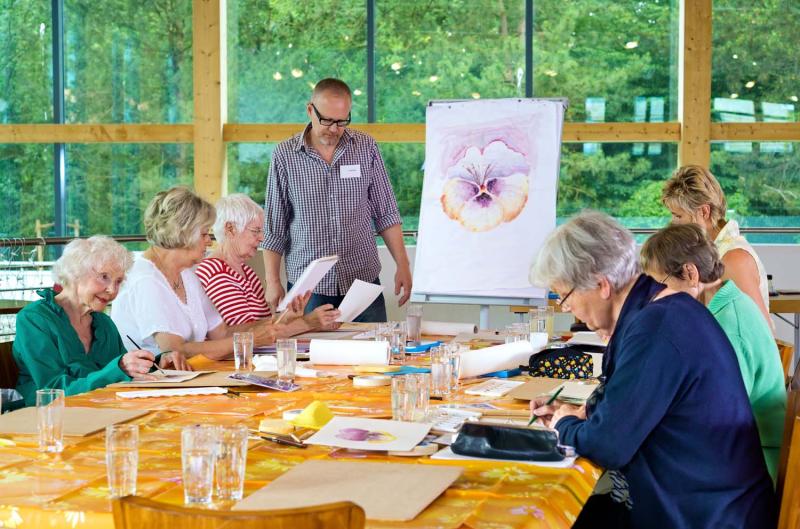This evidence theme is a summary of one of the key topics identified by a scoping review of meaningful lifestyle activities.
The review identified that most of the evidence available was specific to aged care residents with dementia. However, regardless of cognition, aged care residents were found to benefit from and enjoy activities tailored to their individual preferences. [5]
Aged care users are people with a past, present and future
The review identified that occupational therapy’s approach to person-centred care is to understand the individual ‘as a person with a past, present, and future.’ [6] This provides the opportunity for aged care users to maintain their identity. It may also assist professionals and carers to integrate the individual’s interests into daily routines. To integrate meaningful activities into aged care, professionals and carers need to have a deep understanding of their clients as individuals. Activities that are related to residents’ individual values, unique past life experiences, life roles and routines, and appeals to their sense of adventure or growth are more meaningful, motivating, and pleasurable.’ [6] This can facilitate the adaptation and tailoring of activities, within the context of the environment. These principles are demonstrated by a variety of aged care workers such as carers and lifestyle coordinators, however, evidence to support person-centred care was not found.
Person-centred care for people with dementia
For individuals living with dementia, person-centred care should focus on their personal preferences and previous life experiences rather than their diagnosis. [6] Providing personally tailored activities and person-centred care for older adults with dementia has been found to:
- Improve expression of behaviours of concern, although the effects were small, and research was generally of low quality. [7]
- Reduce agitation, neuropsychiatric symptoms, and depression. However, the reduction in agitation with person-centred care interventions was short-term. [8]
- Enhance quality of life (dependent on suitable education of care staff). [8]
Transition care providers are recommended to apply a person-centred care approach for home care to maintain meaningful activities. This requires continual evaluation of the individual’s interests, abilities (both cognitive and physical), personal preferences and a deep understanding of their life story. [9]
Specific activities shown to be particularly useful to improve the wellbeing of older adults with dementia were:
- Music therapy
- Life review and reminiscence therapy. [5, 10]
- In contrast, the evidence supporting staff training to develop individual care plans was of low quality and evidence for animal-assisted therapy was inconclusive. [10]


